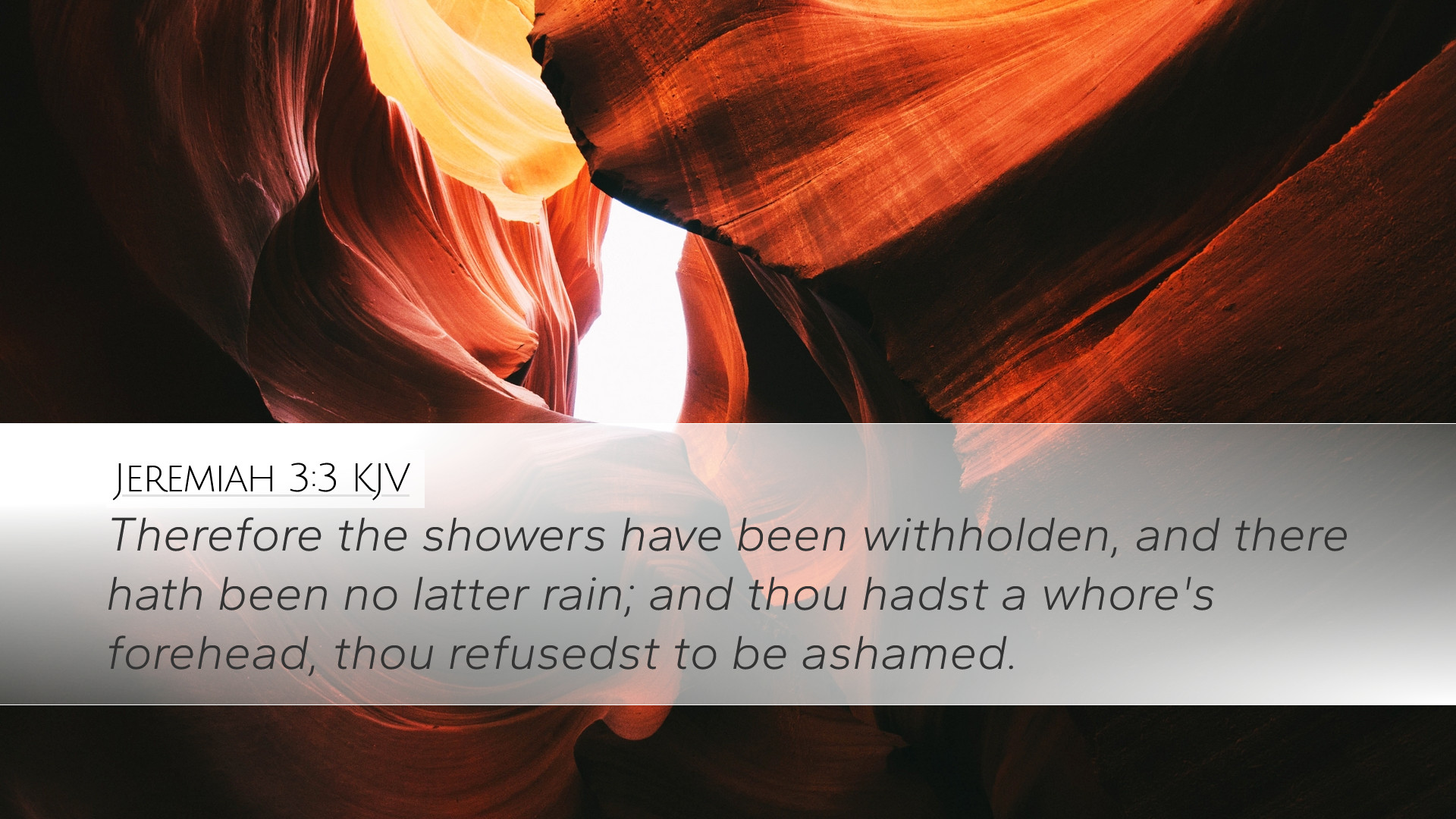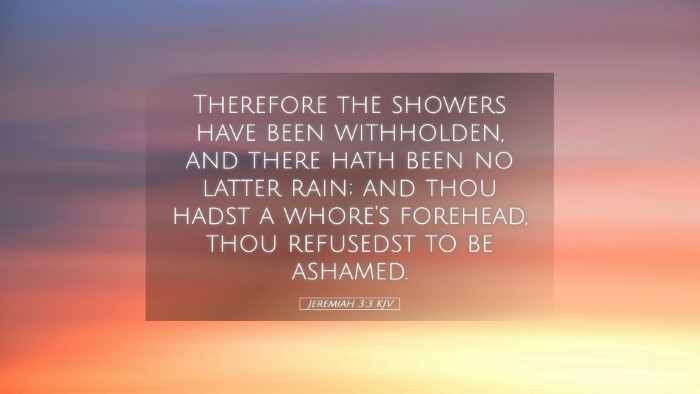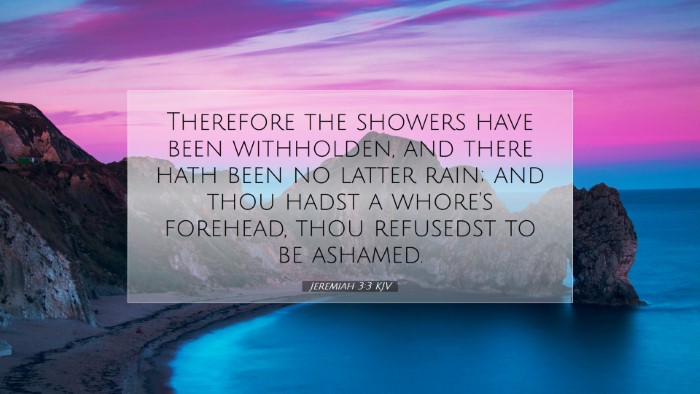Commentary on Jeremiah 3:3
Jeremiah 3:3 (KJV): "Therefore the showers have been withholden, and there hath been no latter rain; and thou hast a whore's forehead, thou refuse to be ashamed."
Introduction
The verse Jeremiah 3:3 presents a vivid picture of spiritual infidelity and the resulting divine judgment. The prophet Jeremiah serves as God's mouthpiece, delivering a poignant message to the people of Judah, who have repeatedly turned away from God towards idolatry and other forms of sin. This commentary draws on the insights of public domain scholars to explore the theological implications and the societal significance of this verse.
Thematic Analysis
At the heart of this verse is the motif of betrayal and the consequences that come from turning away from God. Jeremiah personifies Israel's unfaithfulness, comparing it to the brazen act of a harlot. This metaphor challenges the reader to understand the severity of spiritual infidelity and the need for repentance.
Spiritual Infidelity
Matthew Henry emphasizes that the figurative language used in this verse indicates a profound level of unfaithfulness. He points out that the 'whore's forehead' is not just a metaphor for sin; it symbolizes a lack of shame and consciousness regarding one’s actions. The people of Judah display brazen defiance against God, completely disregarding the covenant, which leads to their spiritual decay.
Consequences of Sin
Albert Barnes comments on the implications of withheld blessings: "the showers have been withholden." He explains that lack of rain in agricultural societies represents divine disfavor. Just as the natural world reflects spiritual realities, the withholding of the latter rain illustrates God's displeasure with a faithless people. Their continued transgressions result in the absence of spiritual nourishment and sustenance.
Literary Devices
Jeremiah uses strong imagery that conveys the intensity of God’s grievance against His wayward people. The use of physical elements, such as "showers" and "latter rain," ties the spiritual reality directly to the everyday existence of the people, demonstrating that their sin has tangible repercussions.
Imagery of Rain
Adam Clarke asserts that rain in the Bible often symbolizes the blessings of God and the outpouring of His grace. The absence of rain, therefore, becomes a metaphor for God's withdrawal of His favor. Clarke highlights that just as farmers rely on the rain for a good harvest, the people of God depend on His grace for spiritual fruitfulness. Their rejection of God leads not only to spiritual barrenness but also to physical ramifications.
Call to Repentance
The verse implicitly calls for a response from the people. The shame that should accompany their actions is conspicuously lacking. Jeremiah's indictment serves as an urgent plea for them to recognize their transgressions and turn back to God. By not being ashamed, they miss the opportunity for repentance, which is the first step to restoration.
The Role of Shame in Repentance
Henry notes that true recognition of sin brings with it a sense of shame, which is necessary for repentance. Without this acknowledgment, individuals remain in a cycle of unfaithfulness, oblivious to their spiritual condition. He argues that personal and corporate acknowledgment of sin is vital for a genuine return to God and restoration of the covenant relationship.
Theological Implications
This verse encapsulates serious theological themes relevant to modern believers. The idea that sin leads to divine withholding of blessings speaks profoundly to the contemporary church. It poses a question regarding the state of the church today: Are we similarly guilty of spiritual infidelity, and are we facing consequences for our actions?
The Nature of God's Judgment
Barnes elucidates that God's judgment is not merely retributive but also corrective. The withholding of blessings serves to draw the people back into right relationship with Him. This divine strategy emphasizes God's desire for restoration over punishment, reflecting His persistent grace and mercy.
Conclusion
Jeremiah 3:3 invites readers to engage deeply with the themes of infidelity, shame, and the consequences of sin. It challenges individuals and communities to reflect on their spiritual state and calls for a return to the covenant relationship with God. Public domain commentators provide rich insights that underscore the timeless relevance of Jeremiah's warning—a call to recognize our own spiritual condition and to seek God with sincere hearts.
Reflection Questions
- How can we identify areas of spiritual infidelity in our own lives or communities?
- What steps can we take to cultivate a heart of repentance and shame for sin?
- In what ways do we experience the withholding of God's blessings today, and what might that reveal about our relationship with Him?


